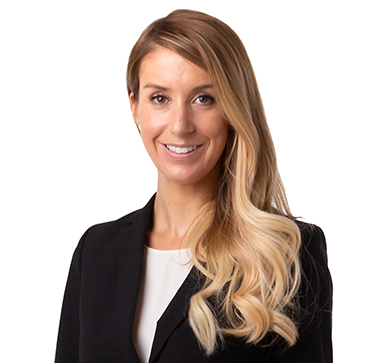COVID-Related Nursing Home Litigation
Author:
Alexandra “Allie” E. Humphreys
Associate
540.438.5325
ahumphreys@wawlaw.com
Nursing homes throughout the country have been deeply affected by the COVID-19 pandemic, making headlines as outbreaks wreak havoc within the facilities. Nursing homes have been hit particularly hard by the virus in large part due to nursing home demographics: elderly individuals, many with underlying health conditions, living in close proximity to one another creates a perfect storm of virus vulnerability. While some factors affecting the spread of COVID-19 in long term care facilities are inherent to the populations to whom these facilities cater, there are steps that nursing homes are required to take to prevent or slow the spread of the virus. Nursing homes are required to follow federal and state regulations specifically enacted to control the spread of infection. Those regulations include requirements that each facility develop and implement policies and procedures to prevent and control airborne and non-airborne infection transmission, train staff regarding infection control measures, ensure all medical equipment (including PPE) is either properly disposed (for single use items) or thoroughly disinfected between each use (reusable items).
Additionally, in the past few months, the Centers for Medicare & Medicaid Services (CMS) issued separate memoranda setting forth COVID-19-specific precautions for long-term care facilities. The memoranda recommended additional precautions and measures for infection monitoring and control, including restricting the admission of visitors, screening all residents and staff for COVID-19 symptoms and promptly isolating residents or staff members with suspected COVID-19 infections, and ensuring communication of status changes to resident representatives and/or family members. Nursing homes must follow applicable regulations and otherwise take reasonable steps to prepare for and prevent the spread of COVID-19 within their facilities.
Ordinarily, a nursing home may be civilly liable if it failed to take reasonable steps to prevent the spread of a communicable illness or infection in its facility, resulting in the serious illness or death of a resident. However, cases related to the spread of COVID-19 in nursing homes may prove much harder, if not impossible, to bring. So far, the governors in a minority of states have entered executive orders extending civil immunity to healthcare providers during the COVID-19 pandemic. While Governor Ralph Northam has not yet issued an executive order to this effect, there has been a strong push for the grant of such immunity in Virginia. On April 7, 2020, a group of medical organizations in Virginia sent a letter to the Governor, requesting the issuance of an executive order granting civil and criminal immunity to health care providers who act in good faith. If entered, the proposed order’s broad immunity would prevent virtually all medical negligence lawsuits where the alleged negligence occurred during the declared state of emergency.
Even if the proposed executive order is not entered, a patient or family member’s ability to sue a nursing home for COVID-19-related negligence may be limited in other ways. For example, a Virginia statute applicable to “disasters” provides liability protection to health care providers during state or local emergencies, if the emergency “renders the health care provider unable to provide the level or manner of care that otherwise would have been required in the absence of the emergency…” Va. Code 8.01-225.02. While this statute does not preclude COVID-19 related litigation against a nursing home in cases involving gross negligence or willful misconduct (higher levels of misconduct), it will likely prove extremely challenging to establish what constitutes gross negligence or willful misconduct in the face of an unprecedented pandemic.
While COVID-19 did not make an appearance in the central Virginia and Harrisonburg/Rockingham regions until nearly two months after the first COVID-19 case was confirmed in the U.S., it has since spread quickly in the area. As of early April, sources tracking the spread of the virus reported the number of confirmed cases growing at a rate of 690% per week in Harrisonburg. By mid-April, local news sources were reporting outbreaks in local long- term care facilities. The first reported COVID-19 outbreak in the US occurred at a long-term care facility in Kirkland, Washington and was widely reported by news sources, giving facilities in our area ample time to prepare for such an outbreak in their own facilities. Given the months of advance notice provided to nursing homes in our area, a facility’s failure to adequately prepare for such an outbreak may be harder to excuse.
If you believe you or a loved one has contracted COVID-19 at a nursing home due to the facility’s failure to follow applicable regulations and otherwise take reasonable steps to prevent the spread of COVID-19, you should contact an attorney specializing in medical malpractice and nursing home litigation to discuss your particular situation. However, as noted above, would-be litigants must understand that medical and nursing home negligence cases involving COVID-19 must be approached cautiously, and many of these cases will not be viable based on existing statutory restrictions and proposed grants of broad immunity.


